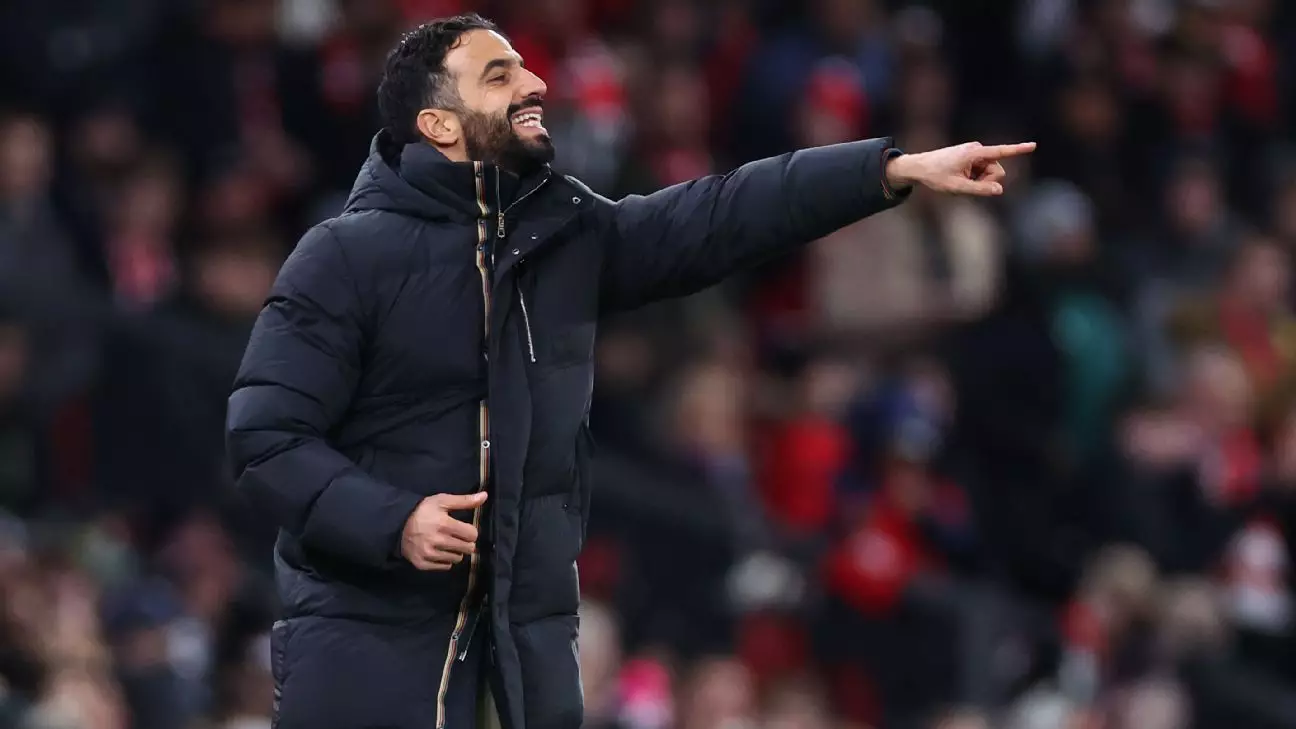Stepping into the colossal arena of Manchester United comes with its own set of pressures, and for manager Ruben Amorim, the early days have been a balancing act between excitement and anxiety. Following his first victory at the helm with a thrilling 3-2 win against Bodo/Glimt in the Europa League, Amorim expressed feelings of nervousness as his squad navigates the complexities of his tactical philosophy. The unveiling of a new tactical approach often entails a period of adjustment, fraught with uncertainty as players acclimatize to new systems and demands.
In his candid reflections, Amorim highlighted the daunting nature of these initial matches. “I get anxious because I don’t know what will happen,” he stated, encapsulating the essence of a coach still in the infancy stage of understanding his players and their capabilities. This sentiment resonates with many in the football world; change in management can lead to turbulence before a desired coherence emerges on the pitch.
Adapting the Strategy
Amorim’s tactical approach was put to the test against Bodo/Glimt, where he made six pivotal changes from his previous match against Ipswich, demonstrating his commitment to evolving the squad. Instituting players like Lisandro Martínez and Mason Mount into the frame indicates a strategic calculus aimed at infusing both creativity and solidity into the team’s dynamic. Although the adjustments led to a spirited performance, Amorim acknowledged that further changes would be necessary as the demanding Premier League looms ahead.
The process of implementation is evidently labor-intensive; with a squad in transition, Amorim faces the challenge of fostering an understanding of his game plan. The coach noted fatigue among his players towards the end of the match, a revelation that brings to light the physical demands of high-pressing tactics that he wishes to instill. His comments about Rasmus Højlund feeling “dead” serve as a reminder of the various factors influencing player performance and fitness, underscoring the need for an adaptive approach to training.
The Path Forward: Embracing Challenges
Looking to the future, Amorim’s anticipation for the upcoming match against Everton suggests a blend of optimism and pragmatism. While he acknowledged improvements from the previous game, the uncertainty looms large as he weighs the fitness levels and readiness of his players. “We will have to change players,” he admitted, showcasing a willingness to pivot based on the moment’s demands. This strategic flexibility is vital for any coach seeking to make a mark in a competitive league like the Premier League.
As the season progresses, the key for Amorim will be cultivating a sense of cohesion and fluidity within the team. With the clock ticking on early-season jitters, finding the right balance between tactical discipline and player freedom will be paramount. The resilience of this Manchester United squad in adapting to challenges will ultimately dictate whether Amorim’s vision can materialize successfully on the pitch. Through patience and careful management, the dream of a cohesive, formidable side could very well become a reality.

